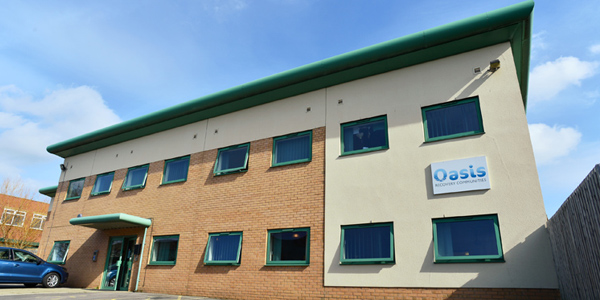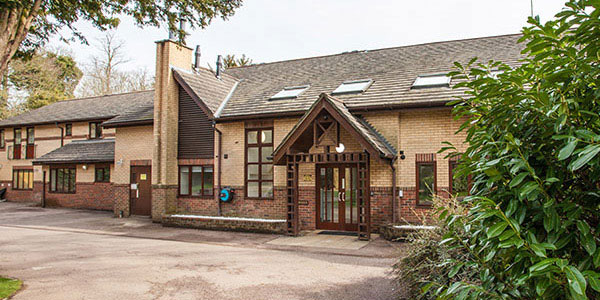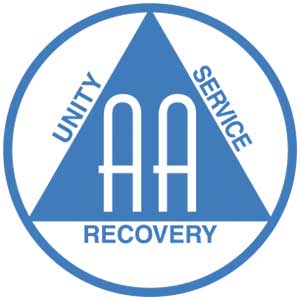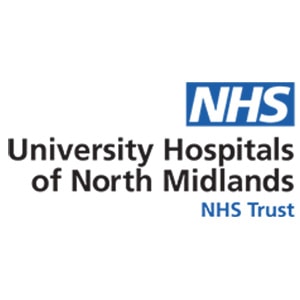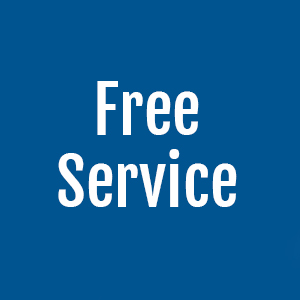Alcohol & Drug Rehab In Stoke-On-Trent
Few people who know and love Stoke-on-Trent will need reminding that for all its vibrancy, community spirit and positive attitude, the city has a darker side in the form of a long-standing and serious addiction problem. Alcohol, illegal drugs – especially hard drugs such as crack and heroin – and prescription medicine are all taking a terrible toll on Stoke’s inhabitants, with knock-on consequences for policing and social health.
However, the picture is not an unremittingly gloomy one: there are now many facilities available for those struggling with addiction who are prepared to reach out for help. If you are among them, do not give up hope: read on to learn how rehab can set you back on the path to happiness.
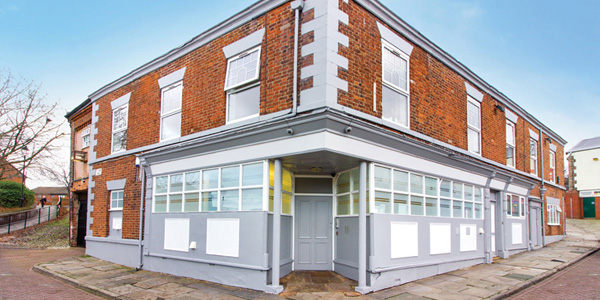
Oasis Runcorn is quite unique detox and rehab unit in offering two treatmen…
- Private
- Holistic Treatment
- Tailored Treatment Programme
- Residential
Featured Rehabs
Built in 2009, Oasis Bradford was originally commissioned by the Department…
Banbury Lodge is a private UKAT rehab facility based in Banbury, Oxfordshir…
Liberty House Clinic is a fully furbished detox and rehabilitation facility…
-
- 12 Step
- Group Setting
- Free
- Outpatient
-
- 12 Step
- Group Setting
- Free
- Outpatient
-
- 12 Step
- Group Setting
- Free
- Outpatient
- Load More
Drug & Alcohol Rehab Services in Staffordshire
- A
- B
- C
- D
- E
- F
- G
- H
- I
- J
- K
- L
- M
- N
- O
- P
- Q
- R
- S
- T
- U
- V
- W
- X
- Y
- Z
What Is Rehab?

Residential rehabilitation – or “rehab” – is the term for the process by which an addict gets treatment for their addiction at a dedicated facility, and also describes the facility itself. At rehab, a patient is able to undergo detoxification (“detox”) and withdrawal with medical assistance – often in the form of pharmaceutical as well as therapeutic support – and engage in therapy aimed at discovering and addressing the root causes of their addiction, in a secure, peaceful, pleasant and (crucially) confidential environment perfect for the necessary introspection and contemplation.
There is a general consensus that rehab is the most effective approach to the treatment of addiction, in terms of its being the most likely to result in permanent abstinence on the part of the erstwhile addict. Its ability to address both short- (physical dependency countered by detoxification) and long-term (psychological addiction, tackled by therapy) challenges in one holistic treatment programme conducted under one roof is unparalleled, and indeed in mainstream culture “rehab” has become synonymous with addiction treatment.
How can I get Someone into Rehab?
Although the NHS can provide very good addiction treatment services, demand is typically very high and as a result waiting times tend to be very long – and, of course, the longer an addiction lasts the greater the damage tends to be (and the higher the risk that the addict will fall victim to overdose or to an accident or an act of violence in which substance abuse is a critical factor).
Time, therefore, is of the essence when it comes to tackling addiction: the sooner an addict can reach out for help the sooner they can begin to receive treatment and, subsequently, embark on the process of recovery – and the greater the chances that the recovery will be full and permanent. If you or someone close to you are wrestling with addiction in the Stoke-on-Trent area, don’t waste time: call 0800 024 1455 today to talk with an addiction specialist about some of the private options available to you.
The Advantages of Private Rehab
Any addict can testify that the temptations of their daily environment can be so great as to make individual attempts to “get clean” all but impossible. Rehab offers a pleasant, peaceful, secure and confidential setting, far from those temptations, in which addicts can focus solely on recovery.
Upon entering rehab, an addict will be assessed by a medical team before embarking on a period of detox and withdrawal supervised by highly experienced professionals who are on hand to make sure that this period is as safe and as comfortable as it can be (this may include the provision of certain medications to ameliorate the worst effects of withdrawal).
Following the detox phase, the patient will move into therapy – different models provided in various forms including group and one-to-one – aimed at addressing the root causes of addiction and at providing the addict with defence mechanisms against relapse. Throughout their stay the patient will be given healthy nutritious food based on a bespoke dietary plan, and will be given a tailored fitness schedule (on the basis that a healthy mind requires a healthy body).
Following the completion of treatment, the patient will leave rehab – but this does not mean that their recovery is complete: this is an ongoing process requiring constant attention and hard work, and as a result the patient will receive free aftercare for up to a year after leaving the facility.
What Does Rehab Cost Near Stoke-on-Trent?
The cost of private rehab in or near Stoke-on-Trent can vary significantly by treatment programme, and depending on which of a variety of optional extras are selected. As a rough guide, standard costs range from between £5,500 and £11,000 per month, though the cheapest rehab treatment can start from as little as £834 per week. For more details, call 0800 804 4755.
NHS Addiction Treatment Options Near Stoke-on-Trent
If you feel that private rehab is currently not an option for you for reasons of cost, or if you do not feel that you are able to spend the required time away from family and/or work obligations, do not despair: various NHS and charity resources can be found in Stoke-on-Trent and across Staffordshire which can help you combat your addiction. Consult your GP about which of these resources may be available to you and would be most appropriate for your specific situation.
Advantages of NHS Treatment
The primary advantage of NHS treatment is, unsurprisingly, financial in nature: NHS options are free at the point of use while, as noted above, private rehab comes at a cost (though compared with the costs – financial and otherwise – of addiction, this may be seen as a priceless investment). They are also very accessible geographically and offer a very good service: the NHS operates in every corner of the country (though waiting times vary and may be substantial, and quality does vary from one NHS trust to another).
Addiction Support Groups
A number of organisations exist across the country to provide assistance to recovering addicts, and some of these operate a support group model. Support groups are groups of individuals who are themselves recovering addicts – some only recently free from addiction, while others may have been clean for many years – and who come together at regular meetings to give and take mutual support: sharing their stories of addiction, giving advice on how to resist relapse, showing solidarity and sympathy when group members are struggling, and providing the simple companionship which can mean so much in times of difficulty and loneliness. Support group attendees can come from all walks of life, brought together by their shared experience of addiction and recovery; typically, attendance at support groups is free and the only qualification for participation is a commitment to leading a life free of substance abuse.
The most famous support group organisation, and the one on which most others are modelled, is Alcoholics Anonymous (AA) which was founded in 1935 and runs on a 12-step programme of personal and spiritual development, with one of the steps being a recognition that a higher power – such as God – can assist with an alcoholic’s recovery. Narcotics Anonymous (NA), founded in 1953 and based directly upon the AA model, is the second-largest support group organisation worldwide and caters to recovering drug addicts specifically. In a similar vein, but supporting those recovering from addictions to specific substances, are Cocaine Anonymous (CA), Heroin Anonymous (HA), Marijuana Anonymous (MA) and Crystal Meth Anonymous (CMA), all of which operate 12-step programmes. There are also support groups such as Al-Anon and Nar-Anon assisting the families and friends of addicts which typically hold meetings alongside those for the addicts themselves.
Support groups typically meet weekly, though each local chapter is managed independently and meeting times and venues are subject to change. To find information on meetings in or near Stoke-on-Trent, see the relevant websites:
Alcoholics Anonymous
, Narcotics Anonymous; Cocaine Anonymous; Heroin Anonymous; Marijuana Anonymous; Crystal Meth Anonymous
Types of Counselling

One form of assistance for recovering addicts which is especially beneficial for those with extremely busy schedules is individual counselling – which can be engaged in either following attendance at rehab or other treatment as a supplementary aid to recovery, or potentially as a means of managing an addiction prior to engagement in a full treatment programme.
Private addiction counsellors operate very much like regular psychotherapists, though with an obvious emphasis on tackling the causes and consequences of addiction. Private counsellors offering a wide variety of different approaches to therapy can be found across the country; they can be seen by private appointment on an ongoing basis – usually weekly – and typically charge a fee per appointment. Some counsellors make themselves available for emergency access while others limit access to working hours.
How to Get to Oasis Runcorn from Stoke-on-Trent
Oasis Runcorn is a unique detoxification and rehab centre in the heart of Runcorn, Cheshire, able to accommodate up to 34 patients at any time. Its spacious and tranquil environment, world-class facilities and hugely experienced and caring staff make this the perfect place to embark upon a recovery from addiction, and its intensive treatment programmes are aimed at healing on a holistic level, addressing medical, emotional, psychological and social needs. Support is available 24/7 and all patients completing treatment programmes receive 12 months’ complimentary aftercare.
To get to Runcorn from Stoke-on-Trent, take the A500 as far as Barthomley Interchange, at which point join the M6 towards Preston. At junction 20, exit onto the M56 towards Runcorn; at junction 11 take the A56 exit and stay on that road until the A558. Continue onto the A533; follow signs to the town centre.
Oasis Runcorn
38-40 Bridge Street
Runcorn
Cheshire
WA7 1BY


